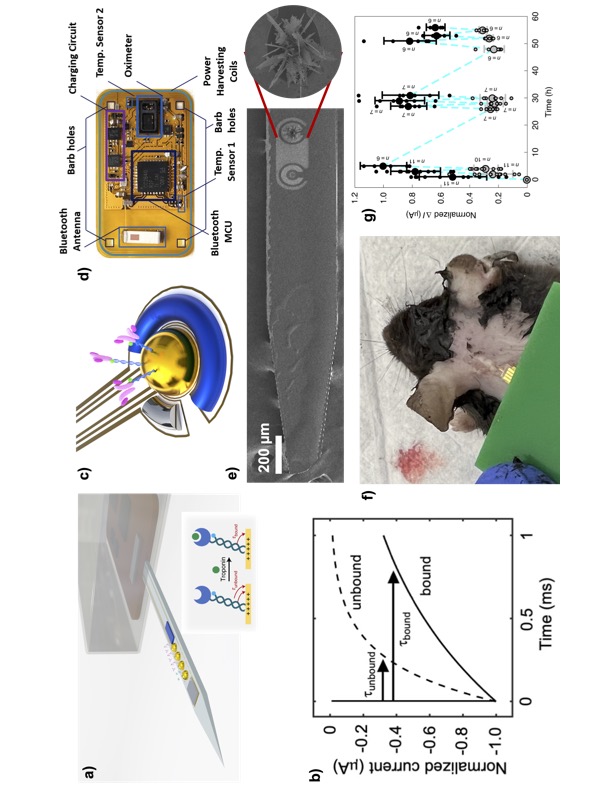2023 AIChE Annual Meeting
(2dc) Miniaturized Systems for Disease Management and Decentralized Diagnostics
Author
Teaching Interests include: Thermodynamics of Chemical Engineering, Physical Chemistry, Statics, Biomedical Devices, Diagnostics Systems, Bioengineering, Material Transfer, Heat Transfer, Surface Chemistry, Biointerface Engineering,
Chronic diseases such as heart failure (HF) are increasingly prevalent conditions that are difficult to manage. Patients often experience significant deterioration between clinic visits, and by the time they become symptomatic, their condition cannot be managed outside of the hospital. The ability to perform continuous monitoring of protein biomarkers on a body-implanted device will transform our capacity to diagnose disease and preserve wellness. Several continuous monitoring techniques have been proposed; while informative, they employ time-consuming procedures and require expensive instrumentation. These limitations restrict traditional methods from being translated to implantable devices. Using Flexible and Implantable sub-millimeter polymeric substrates, we propose a new solution for remote, continuous monitoring of chronic disease clinical biomarkers (HF as a proof-of-concept) to manage patientsâ health. We recently developed the first of-its-kind reagent-less molecular sensor for in situ detection of a wide range of targets, such as viral particles and proteins (Yousefi, Mahmud et al. 2021, Zargartalebi, Yousefi et al. 2022). However, continuous monitoring of chronic disease requires installing a miniature device inside the human body and continuously monitoring the patient for an extended period. The small device provides efficient reaction rates with a sub-millisecond resolution, which has not been achieved using the current common diagnostics paradigm. By moving from materials used in traditional electrochemistry to using unconventional recent developments in the fields of material science, we introduce a new generation of sensing platforms that are biocompatible, affordable, reliable, and environmentally friendly to deliver the promised goals of chronic disease management. Using an HF dog model, and accessing interstitial fluid via contact with the deviceâs implantable part, we will be able to monitor disease progression, inflammation, and biomarker levels. This technology will provide a new generation of devices for the continuous monitoring of vital biomarkers in HF rat models.
